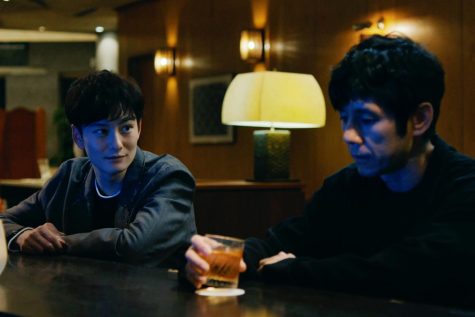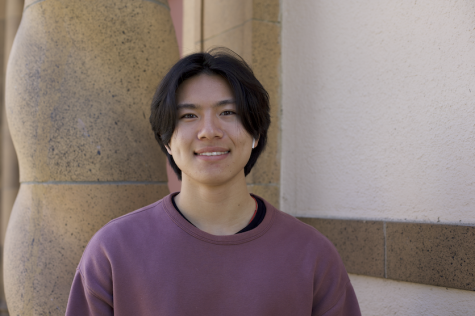‘Drive My Car’: An insightful story for the living
March 26, 2022

“We’ll live through the long, long days, and through the long nights. We’ll patiently endure the trials that fate sends our way.”
The closing lines of the play “Uncle Vanya” hit close to home for a grieving theater director in the Japanese drama and Academy Award Best Picture nominee “Drive My Car,” which breaks down language barriers to deliver a beautiful commentary on life and loss.
“Drive My Car” describes the life of theater director Yusuke Kafuku and his production of “Uncle Vanya,” which takes a unique angle on the 1899 play by having each of the play’s actors speak different languages. To understand each other, the cast must learn each other’s lines by heart.
Kafuku learns the lines by speaking along to a recording while he drives. To get more practice, he books a hotel an hour away from the theater so he can practice while driving to and from rehearsals. However, the theater’s policy dictates that Kafuku needs a chauffeur, and Kafuku ends up driving everywhere with his chauffeur Misaki Watari. As the film progresses, the two characters become closer: each dealing with survivor’s guilt and deep grief.
Kafuku, Watari, and the actors’ pasts are filled with drama that unfolds as the film progresses. The more we learn about the characters, the more realistic the story feels.
Throughout the film, we see the behind-the-scenes production of “Uncle Vanya.” In this way, “Drive My Car” doesn’t place us in the audience — by showing the casting, table reads, and rehearsals of “Uncle Vanya,” the film places us squarely in Kafuku’s shoes. We feel his jealousy, his grief, and his dedication to his craft as though it’s our own.
This doesn’t happen immediately — the 40-minute-long opening sequence gives us insight into Kafuku’s personality before he even begins to direct “Uncle Vanya.” The film never states what happened to Kafuku, and instead forces us to infer his past through his conversations and actions. We’re attracted to the story because it feels like real gossip.
Despite its length, the opening sequence passes by in a blur. In fact, the movie never drags in its three-hour runtime. Scenes abruptly cut into each other, one after the other, and we’re caught in the crossfire of vignettes in Kafuku’s life.
This flurry of action is often interrupted by quieter, slow scenes of Kafuku and Watari driving. The slower pacing gives us a breath from the onslaught of story we’re exposed to. “Drive My Car” brilliantly gives us a narrating voice on Kafuku’s life through the script of “Uncle Vanya” that plays in the background of the car — as life imitates art, Kafuku’s life draws a clear parallel to the character of Vanya in the play.
Another factor that makes the movie not feel long is its visual appeal. “Drive My Car” feels fresh by frequently alternating between contrasting components. Shots alternate between emotional close-ups of characters to wide views of industrial and rural Japan.

The lighting’s color also reflects Kafuku’s mood: dark lighting signals seductive mystery, and warm lighting signals security. In a bar scene where Kafuku talks to Takatsuki, an actor in “Uncle Vanya” who has a history with Kafuku, his face is half-lit cold and half-lit warm — reflecting Kafuku’s dreaded curiosity.
Each scene feels realistic, and it’s hard not to relate to the characters’ struggles. “Drive My Car” accomplishes this with ambient sounds in place of music, which sets you inside the scene rather than outside and observing it.
“Drive My Car” would typically have a small chance of winning Best Picture in the Academy Awards as a foreign film. However, in the 92nd Academy Awards two years ago, the Korean film “Parasite” won the award, setting the precedent for other foreign films like “Drive My Car.”
In short, “Drive My Car” is a beautiful story describing life’s struggles of loss and recovery, and it uses unique film techniques to stand strong as a Best Picture contender.
“Drive My Car”
Not rated.
Runtime: 2 hours, 59 minutes.
Directed by Ryusuke Hamaguchi.


